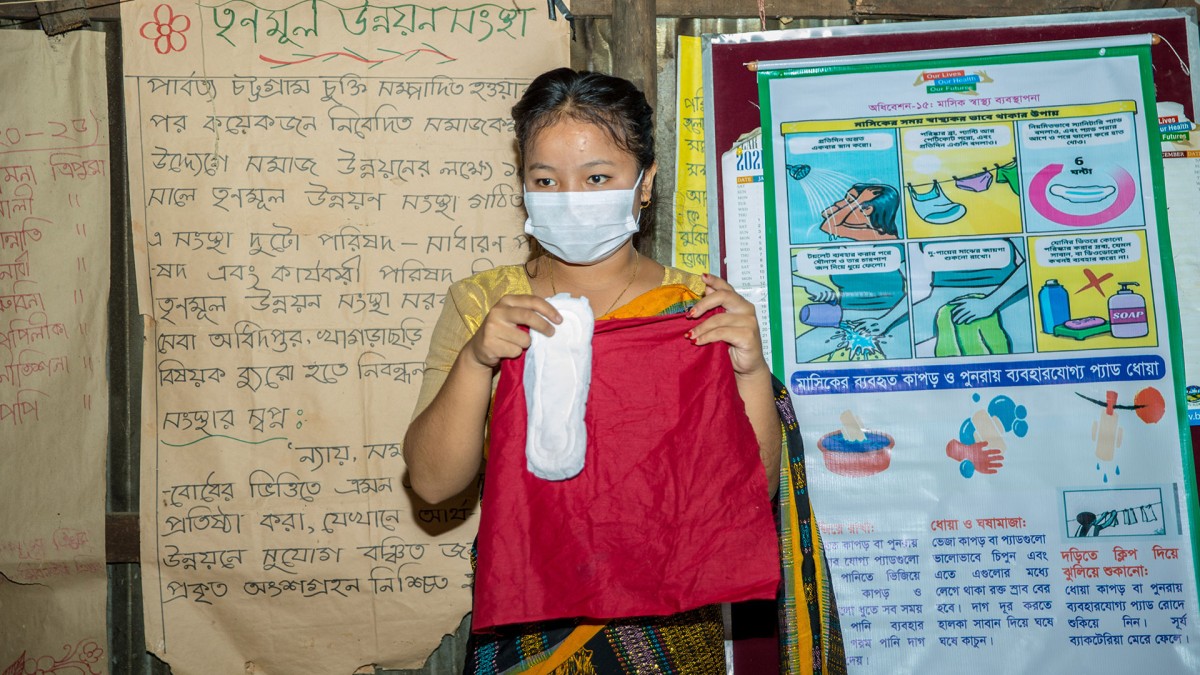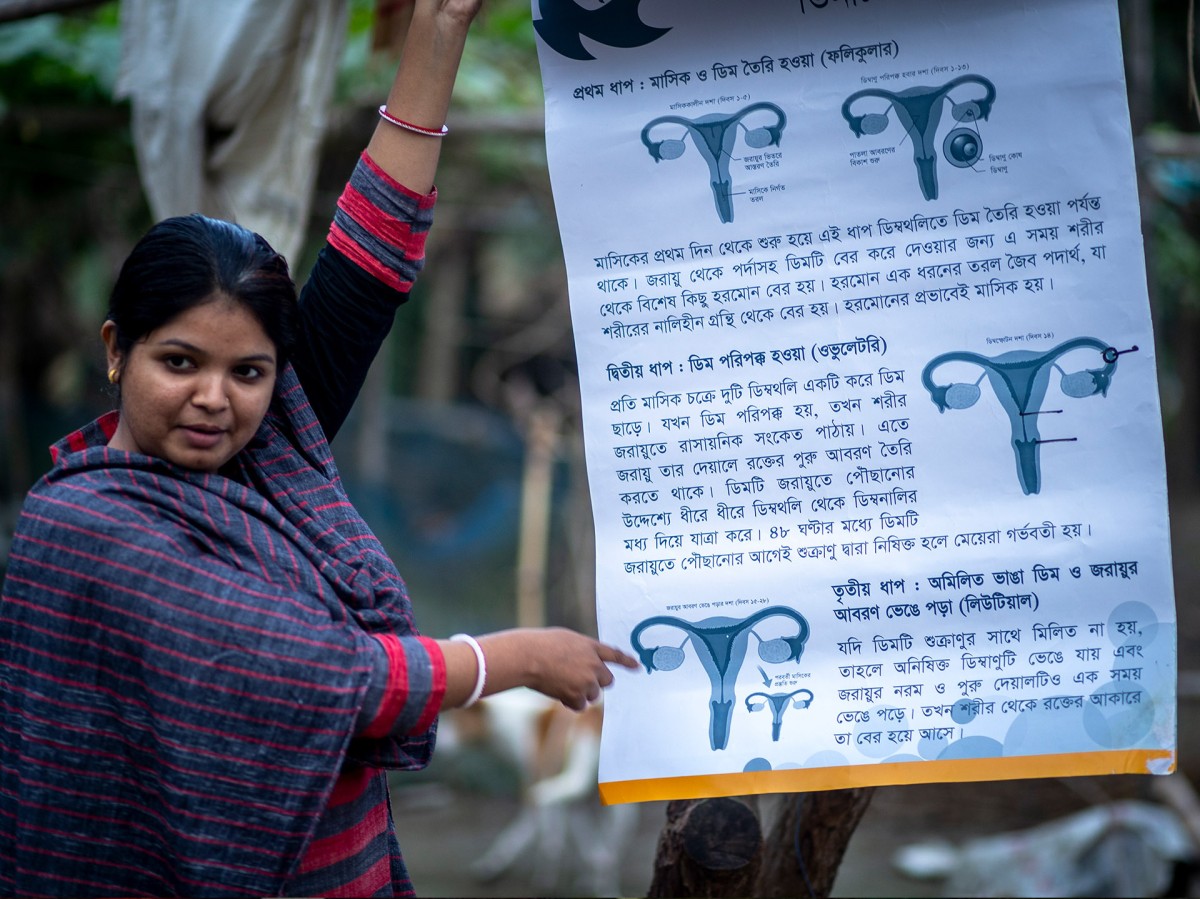Menstrual health: crucial for achieving the SDGs
Every day, about 800 million people menstruate. It is a natural part of life for around 1.8 billion people in the world (UNICEF, 2018). Having periods is a normal and important part of the reproductive system, and everyone has the right to take care of their menstrual health.
Unfortunately, menstrual health is often accompanied by taboos and stigma and is used to suppress people who menstruate, affecting their position in society. They have to hide it, and cannot partake in daily activities such as school or work.
How menstrual health and the SDGs are connected
Menstrual health is not yet an explicit part of the Sustainable Development Goals (SDGs). However, achieving menstrual health for all is imperative to achieve the SDGs, as there are many linkages between menstrual health and the goals. For instance, adequate menstrual health is needed to achieve the SDGs on poverty, health, education, gender equality and water and sanitation.
As detailed by experts, you cannot have good health for all (SDG3) without addressing menstrual health. Gender equality (SDG5) means that workplaces, schools, and home environments facilitate the safe, comfortable, and hygienic management of menstruation. Keeping Menstrual health out of the discussion is an omission that leads to the exclusion of billions of menstruating people in daily life, and hampers progress towards real inclusive societies.

In our work as we also clearly see these linkages between menstrual health and the SDGs in Simavi's programmes. For instance, girls attend school more often when they have sufficient access to information and products, and taboos are broken. Menstrual health programmes also have a positive impact on girls' ability to perform daily activities during their period.
By providing education and support, girls become more confident in talking about menstruation, breaking down long-held taboos and changing restrictive beliefs. As shown in a study conducted alongside one of our menstrual health programmes, this can lead to improved mobility and quality of life for people who menstruate. We saw for instance a significant rise in school attendance, girls partaking in daily activities that they were banned from before, and an increased understanding of their menstrual cycle.

Without special attention to menstrual health, we will not be able to achieve the SDGs by 2030. That is why we took the opportunity during the United Nations Water Conference in March 2023 to firmly place menstrual health on the agenda for SDG6.
Together with our partners we organised a session where representatives of governments, donors, and activists came together to discuss how we can accelerate action towards achieving the SDGs. We even had a special message from UNICEF Goodwill ambassador Millie Bobby Brown.
Clear goals, dedicated budgets and monitoring
There is increasing recognition of the critical role of safe and dignified menstrual health for people who menstruate all over the world, including their well-being and health, access to education, livelihoods and workforce participation. However, in the absence of international goals for menstrual health, very few governments have defined clear national goals, dedicated budgets for menstrual health or set up systems to monitor progress.
Without clear international and national goals, menstrual health will remain a low priority and progress will continue to be fragmented at best. Including menstrual health in the goals and indicator framework of the SDGs would be a good first step to ensure accountability, dedication and action towards menstrual justice.
That is why we are committed to keeping menstrual health high up the political agenda. At Simavi, we’ve long been involved with guiding the Dutch government towards inclusive menstrual policies in their foreign affairs programmes, and advocating for clear targets, goals, and commitments.
The evidence is clear; investing in menstrual health is investing in women’s and girl’s rights, and is essential to fully realise the SDGs.
For more information on the links between the SDGs and menstrual health, have a look at the paper that was published for the event at the UN Water Conference.


